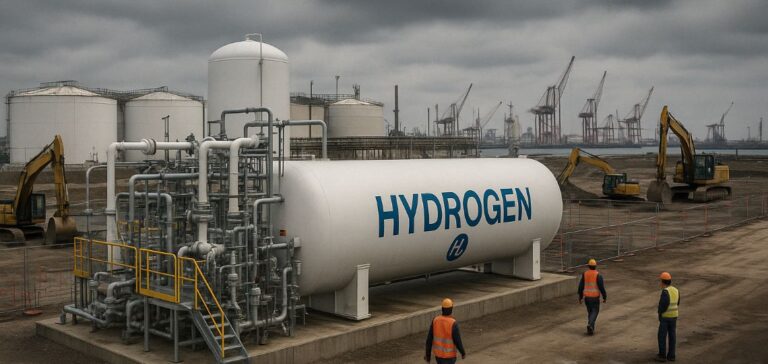French company Lhyfe announced on April 17 that it had secured a public subsidy of €149 mn for the development of its future green hydrogen production site located near the Grand Canal of Le Havre, in northern France. The project, named Green Horizon, aims for a daily capacity of 34 tonnes of hydrogen from renewable sources and is among the initiatives supported under the third wave of the Important Projects of Common European Interest (IPCEI) focused on hydrogen.
An initial advance of €18 mn will be disbursed by June to cover expenses already incurred since 2022 and to launch the next phase of industrial development. Further payments, spread over four years, will be contingent on the achievement of previously defined contractual milestones. Each additional tranche will be granted in the form of reimbursement for eligible and duly justified expenditures.
Industrial deployment at the port of Le Havre
The Green Horizon site will be directly connected to the port’s industrial network via a pipeline system, streamlining hydrogen delivery to end users. This distribution mode is designed primarily for hydrogen demand in heavy industrial processes within the port complex, one of the largest in Europe.
Matthieu Guesné, founder and Chief Executive Officer of Lhyfe, described the funding as institutional recognition, noting that the project will enable the company to surpass 100 megawatts of installed electrolysis capacity. He also recalled that Lhyfe already operates four production sites in France and Germany, in operation since 2021.
Regulatory context and national strategy
The announcement coincides with the publication on April 16 of the French government’s new National Hydrogen Strategy. The updated framework revises the electrolysis capacity target to 4.5 GW by 2030 — down from 6.5 GW — and introduces a €4 bn support mechanism for the production of low-carbon hydrogen.
According to the index published on April 16 by Platts (part of S&P Global Commodity Insights), the price of electrolytic hydrogen in Europe (Netherlands, PEM electrolysis including capital costs) stood at €4.57/kg. This price level illustrates the economic challenges producers must overcome to achieve large-scale viability, particularly in industrial areas such as Le Havre.






















